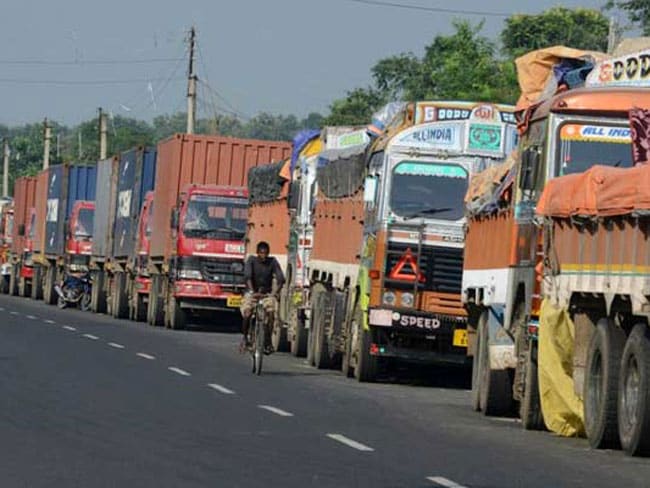
For four months trucks have been stuck at the border, making it impossible for land-locked Nepal to access essential items.
The Madhesis have been protesting for almost four months in southern Terai plains, blocking the movement of vehicles between India and its land-locked neighbor, creating widespread shortages in the Himalayan nation.
India has welcomed the Nepal government’s move, calling it “positive steps that help create the basis for a resolution of the current impasse”.
“We urge all Nepali political forces to now demonstrate the necessary maturity and flexibility to find a satisfactory solution to the Constitutional issues through constructive dialogue in an agreed timeframe,” read a statement from the foreign ministry.
A meeting between the Nepali Congress and the Madhesi leaders is now underway at former Nepal Prime Minister Sushil Koirala’s house in Kathmandu to discuss future course of action.
Nepal’s decision was taken late last night at an emergency Cabinet meeting. It was also decided to set up a political mechanism to recommend solutions to disputes over the proposed provincial boundaries within three months of its formation.
“The bill has ensured proportional inclusive participation in various state organs as demanded by the agitating parties and has also proposed delimitation of the electoral constituencies based on population,” Minister for Industry Som Prasad Pandey told the media after the meeting.
The political mechanism, he said, “will recommend solutions to disputes over the proposed provincial boundaries within three months of its formation”.
The Madhesis — who comprise nearly 52 per cent of Nepal’s population — have been protesting against the seven-province model proposed in the new Constitution that divides their ancestral land as a way to politically marginalise them.
Four months ago, they blockaded Nepal’s border trade points with India, causing a shortage of essential goods and medicines. Since August, 50 people have been killed in protests.











